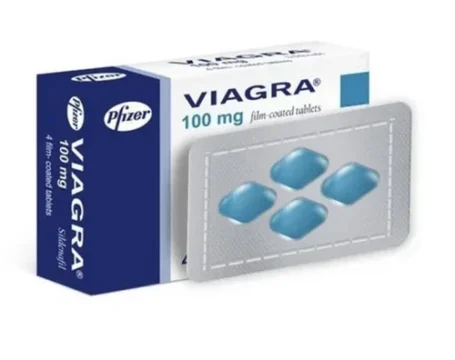- You have no items in your shopping cart
- Continue Shopping

Does Viagra Work On Women, or sildenafil, is widely recognized for its effectiveness in treating erectile dysfunction (ED) in men. Developed in the late 20th century, it has helped millions of men worldwide regain their sexual function. However, a common question that arises is whether Viagra works on women as well. While it was initially approved for male use, the notion of applying Viagra to women has sparked both scientific interest and public debate. In this article, we will explore the science behind Viagra, its potential effects on women, and the ongoing research that seeks to understand its role in female sexual health.
The Science Behind Viagra
Before delving into whether Viagra works for women, it’s essential to understand how the drug works in men. Viagra functions by inhibiting an enzyme called phosphodiesterase type 5 (PDE5). This enzyme is responsible for breaking down cyclic guanosine monophosphate (cGMP), a molecule that helps relax the smooth muscle cells in the blood vessels of the penis. By blocking PDE5, Viagra allows cGMP to accumulate, which leads to improved blood flow to the penis, resulting in an erection when combined with sexual arousal.
Female Sexual Dysfunction: A Different Issue
In order to answer whether Viagra works for women, it’s important to understand female sexual dysfunction (FSD). Sexual dysfunction in women is often more complex than in men and can have a variety of causes, including hormonal imbalances, psychological factors, relationship issues, and physiological conditions. Women may experience problems such as low libido, vaginal dryness, difficulty achieving orgasm, or a lack of sexual arousal. These issues can be influenced by a range of factors, including stress, hormonal changes (such as during menopause), medical conditions, or side effects from medications.
Unlike male sexual dysfunction, which is often related to blood flow to the penis, female sexual dysfunction is more nuanced and may involve psychological, hormonal, or anatomical factors. This is why Viagra, which targets blood flow, may not be as straightforwardly effective for women as it is for men.
Viagra and Its Potential Effects on Women
When Viagra was first introduced, researchers were curious whether its mechanism of action—enhancing blood flow by inhibiting PDE5—could be beneficial for women as well. After all, the drug affects blood vessels, and improving blood flow to the genital region could, in theory, enhance sexual arousal and sensation for women too.
Several studies have explored Viagra’s impact on women, especially in terms of sexual arousal. In clinical trials, the results have been mixed. Some studies suggest that Viagra may help increase blood flow to the genital area, potentially improving arousal, sensitivity, and lubrication for some women, particularly those with certain medical conditions like diabetes, multiple sclerosis, or postmenopausal women who experience vaginal dryness or low sexual desire. These women might benefit from the increased blood flow, which can enhance physical arousal during sexual activity.
However, other studies have not found any significant benefits for women using Viagra. For instance, research involving women with low libido or sexual arousal disorder did not show consistent improvements in sexual satisfaction or desire. Some studies suggest that Viagra may have little to no effect on the sexual experience for women who do not have a physiological issue affecting blood flow to the genital region.
The Lack of FDA Approval for Women
Despite some promising findings in early research, Viagra has not been approved by the U.S. Food and Drug Administration (FDA) for use in women. In fact, the FDA has not approved any PDE5 inhibitors, including sildenafil, for the treatment of female sexual dysfunction. The main reason for this is that the results of clinical trials have been inconsistent, and there is still no clear evidence that Viagra offers a significant benefit for most women.
In contrast, other medications, such as flibanserin (Addyi) and bremelanotide (Vyleesi), have been approved by the FDA to treat female sexual dysfunction. These drugs work through different mechanisms, addressing factors like low libido or arousal. While Viagra might offer some potential benefit for certain women, it has not been proven to be a reliable treatment for female sexual dysfunction in general.
Psychological and Emotional Factors
One critical aspect of female sexual dysfunction is the role that psychological and emotional factors play. Women may experience sexual problems due to stress, anxiety, depression, or relationship difficulties. While Viagra’s effect on blood flow could theoretically improve physical arousal, it does not address the emotional or psychological components of sexual health. For many women, sexual arousal and desire are influenced by their mental and emotional state, which is something that Viagra cannot directly address.
Current Research and Future Possibilities
While Viagra is not FDA-approved for use in women, ongoing research continues to explore its potential benefits for women with specific health conditions. For example, there is some evidence suggesting that Viagra might be useful for postmenopausal women experiencing vaginal dryness or women who have had hysterectomies. In these cases, the increase in blood flow could potentially help with arousal and lubrication, enhancing sexual comfort.
Additionally, there is interest in the role that Viagra may play in improving sexual satisfaction in women undergoing cancer treatments. Chemotherapy and radiation therapy can lead to sexual dysfunction in women, including vaginal dryness and reduced libido. Some studies have shown that Viagra could offer modest improvements in blood flow to the genital area, potentially alleviating some of these symptoms.
While the results are promising in certain populations, researchers are still working to fully understand the drug’s effects on women and whether it could be used as a treatment for female sexual dysfunction more broadly. Until more definitive conclusions are reached, women should be cautious about using Viagra without medical supervision.
Conclusion
The question of whether Viagra works on women is complex. While the drug has shown some potential to improve sexual arousal in certain women, especially those with specific medical conditions that affect blood flow, the evidence is far from conclusive. Viagra is not a one-size-fits-all solution for female sexual dysfunction, and it has not been approved by the FDA for use in women. Other treatments, such as hormonal therapies and FDA-approved drugs like flibanserin, may offer more effective solutions for many women experiencing sexual dysfunction.
As research continues, it’s important for women to consult with healthcare providers to determine the most appropriate treatment for their individual sexual health needs. Whether it’s through lifestyle changes, psychological therapy, or pharmaceutical interventions, there are a variety of options available to address sexual health concerns. Until more is known about Viagra’s effects on women, it should only be used under the guidance of a medical professional, and its potential benefits should be weighed carefully against the risks.




